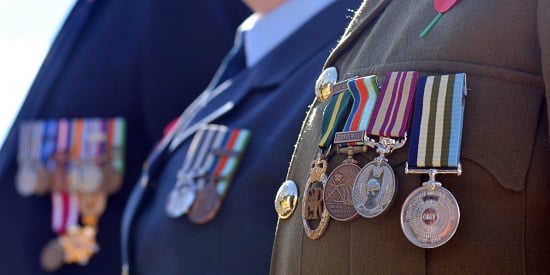Forgotten force: Australia's maligned war workers
Media release
Anzac Day serves to honour Australia and New Zealand's war heroes, especially those who died fighting overseas.
But according to Deakin University historian Dr Bart Ziino the wartime contributions of one group of Australians consistently overlooked are men and women who served in reserved occupations and protected industries in World War II.
These Australians worked in industries including medicine, agriculture, manufacturing and engineering that were deemed so important to the war effort at home they were blocked from enlisting in the armed services.
At the time they faced abuse in the street and criticism in the media by those who accused them of being cowards and shirkers.
Many wartime workers longed for acknowledgement of their contribution to the war effort, yet early moves seeking recognition of protected industries personnel were shut down by those who felt they were undeserving.
'What a lot of people don't realise is tens of thousands of men and women in WWII were precluded from enlisting in the armed forces and auxiliaries while their friends and family were shipped off,' Dr Ziino said.
'They worked in jobs in munitions, textiles, and food production, among others, that required them to stay at home. They made clothes and weapons for soldiers fighting overseas or grew food to send abroad or feed those left at home, so soldiers' families didn’t starve.
'But acknowledging their contribution in comparison with those in the armed services was fraught, and their role in Australia’s wartime history has largely been ignored.'
Speaking at the Royal Historical Society of Victoria's 2023 Weston Bate Oration in June, Dr Ziino and Deakin research fellow Dr Brad Underhill described the plight of protected industries workers who received white feathers in the mail from anonymous senders, implying they were cowards.
Even after the wars ended Dr Ziino said reserved occupations workers were denied opportunities afforded to veterans through employment preference schemes.
'The belief was they did not serve overseas and face the threat of being killed; therefore, they had not earned the same honour and respect,' Dr Ziino said.
'I was surprised at the level of antagonism directed at people in reserved occupations in Australia while researching this topic. You had people getting stuck into fellow citizens for not being in the army or going off to serve in the war despite the restrictions those people faced.
'Anzac Day is a day for people to think about the experience of war in Australia's past and if we're going to do that, we should try to understand the experience of all Australians involved. If we focus exclusively on the military services, we only get part of the picture.'

